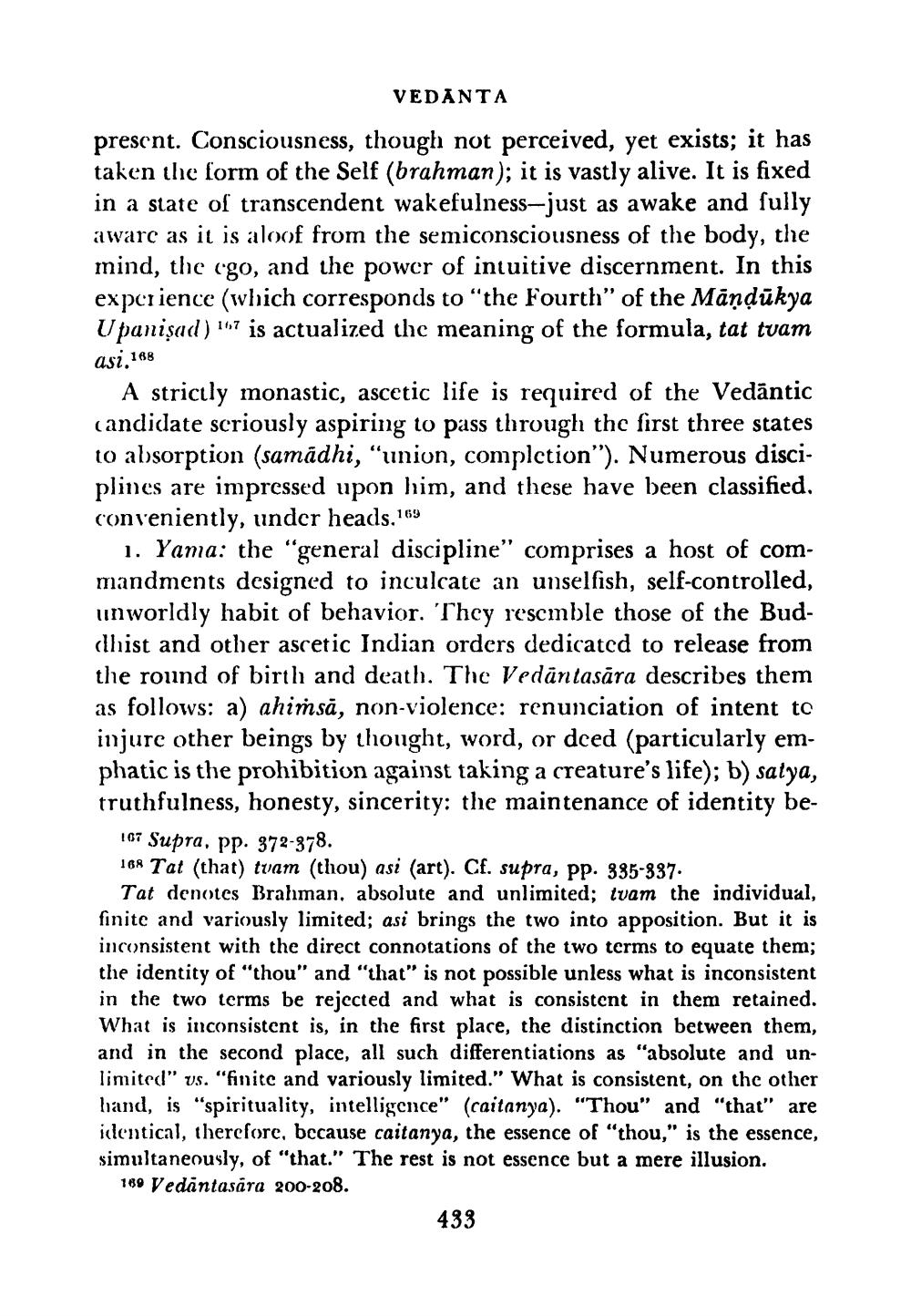________________
VEDANTA
present. Consciousness, though not perceived, yet exists; it has taken the form of the Self (brahman); it is vastly alive. It is fixed in a state of transcendent wakefulness-just as awake and fully awarc as it is aloof from the semiconsciousness of the body, the mind, the "go, and the power of intuitive discernment. In this experience (which corresponds to "the Fourth” of the Māņdūkya Upanişad) 197 is actualized the meaning of the formula, tat tuam asi.188
A strictly monastic, ascetic life is required of the Vedāntic candidate scriously aspiring to pass through the first three states to absorption (samadhi, "union, complction"). Numerous disciplines are impressed upon him, and these have been classified. conveniently, under heads. 169
1. Yama: the "general discipline" comprises a host of commandments designed to inculcate an unselfish, self-controlled, unworldly habit of behavior. They resemble those of the Buddhist and other ascetic Indian orders dedicated to release from the round of birth and death. The Vedāntasära describes them as follows: a) ahiṁsā, non-violence: renunciation of intent to injure other beings by thought, word, or deed (particularly emphatic is the prohibition against taking a creature's life); b) satya, truthfulness, honesty, sincerity: the maintenance of identity be
107 Supra, pp. 372-378. 188 Tat (that) tvam (thou) asi (art). Cf. supra, pp. 885-837.
Tat denotes Brahman. absolute and unlimited; tvam the individual, finite and variously limited; asi brings the two into apposition. But it is inconsistent with the direct connotations of the two terms to equate them; the identity of "thou" and "that" is not possible unless what is inconsistent in the two terms be rejected and what is consistent in them retained. What is inconsistent is, in the first place, the distinction between them, and in the second place, all such differentiations as "absolute and unlimited" vs. "finitc and variously limited." What is consistent, on the other hand, is "spirituality, intelligence" (caitanya). "Thou" and "that" are identical, therefore, bccause caitanya, the essence of "thou," is the essence, simultaneously, of "that." The rest is not essence but a mere illusion. 189 Vedāntasára 200-208.
433




